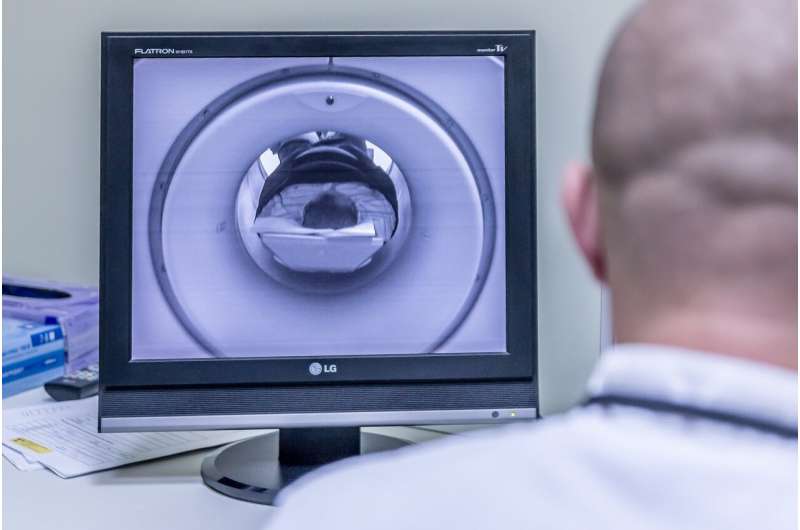Link Between Emphysema Detected on CT Scans and Increased Mortality Risks in Asymptomatic Adults

A groundbreaking study links emphysema detected on baseline lung CT scans in asymptomatic adults to a higher risk of death from COPD, cardiovascular disease, and all causes over 25 years, emphasizing the importance of comprehensive lung health assessment.
A recent long-term study has established a significant connection between emphysema observed on baseline low-dose chest CT (LDCT) scans during lung cancer screening and elevated risks of death from various causes, including chronic obstructive pulmonary disease (COPD) and cardiovascular disease. Conducted on over 9,000 asymptomatic adults, this research followed participants for up to 25 years, revealing that even mild emphysema on an initial scan is associated with a greater risk of mortality.
Emphysema is a chronic lung condition characterized by damage to the air sacs within the lungs, leading to breathing difficulties. It is most often caused by prolonged exposure to cigarette smoke and environmental pollutants. The study utilized a detailed visual assessment of CT images, with radiologists assigning emphysema severity scores from 0 (none) to 3 (severe). Findings showed that approximately 70.9% of participants had no evidence of emphysema, while 21.1% had mild emphysema, 5.7% moderate, and 2.4% severe. Interestingly, a substantial portion of those with emphysema had not been previously diagnosed.
Results indicate that emphysema presence and its severity notably increased the likelihood of death from all causes, especially from COPD. The hazard ratios demonstrated a 1.15-fold increased risk for mild emphysema and a 2.28-fold increase for severe emphysema regarding all-cause mortality. For deaths related specifically to COPD, the risk escalated from 2.07 times for mild cases to over twelve times for severe emphysema.
This research underscores that emphysema, identified incidentally on scans meant for lung cancer screening, should be regarded as a serious marker rather than an incidental finding. It highlights the importance of comprehensive assessment of chest CT scans to evaluate not just nodules but also underlying lung tissue health. Dr. Claudia Henschke, the principal investigator, emphasized that such visual assessments can serve as powerful tools for future risk stratification and preventive interventions.
The study also points toward a broader approach in preventive health, advocating for assessment of COPD and cardiovascular risks through routine lung screening. This could lead to earlier intervention strategies, potentially improving long-term outcomes. Moreover, Dr. Henschke suggested extending screening eligibility beyond current guidelines, which primarily target smokers aged 50–80 with a significant smoking history, to include non-smokers, given the 30,000 to 40,000 annual lung cancer deaths among non-smokers.
Overall, the study advocates for a holistic, integrated approach to lung health, encouraging collaboration among pulmonologists, cardiologists, and radiologists. Recognizing the presence of emphysema on CT scans provides crucial prognostic information, enabling targeted interventions and personalized patient management. As imaging technology and understanding of lung disease evolve, utilizing CT scans for broader health assessment could significantly impact future preventive healthcare practices.
Stay Updated with Mia's Feed
Get the latest health & wellness insights delivered straight to your inbox.
Related Articles
Updated Guidelines on Kidney Health: Managing Potassium and Phosphorus Additives
The ASN releases new Kidney Health Guidance highlighting strategies to manage potassium and phosphorus additives in kidney disease, aiming to improve patient nutrition and health outcomes.
Majority of Australian Diagnostic Imaging Clinics Now Owned by For-Profit Corporations, New Study Finds
A new study reveals that over 50% of Australia's diagnostic imaging clinics are owned by for-profit corporations, raising critical concerns about healthcare costs, access, and quality.
Emphysema Detected on Low-Dose CT Scans Can Predict Long-Term Mortality Risks
A recent study finds that emphysema visible on low-dose CT scans used for lung cancer screening can predict increased mortality risk over 25 years, especially from COPD and respiratory diseases.
Questioning the Reliability of FDA-Approved Metrics for Rectal Cancer Drug Effectiveness
A new study questions the reliability of the FDA-supported metric, pathologic complete response, used to evaluate the effectiveness of rectal cancer treatments, suggesting it may not predict long-term survival.



